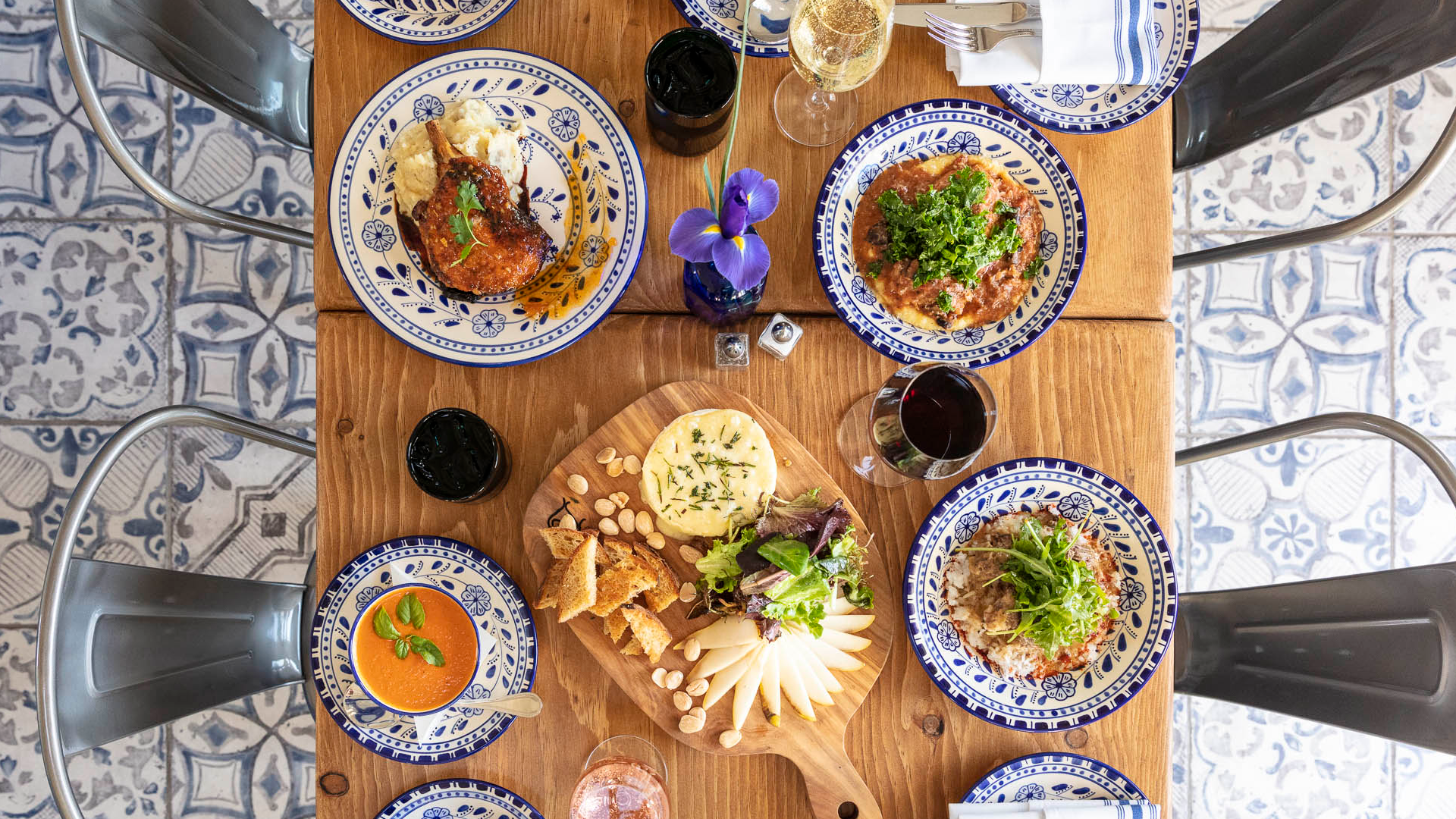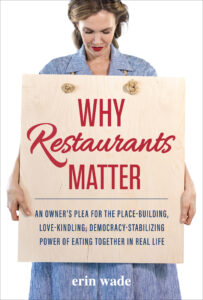Wendell Berry and It All Turns On Affection
We change the garden wall every season, and this one is a tribute to the writer and thinker Wendell Berry, with excerpts from his famous essay The Pleasures of Eating and his Jefferson Lecture, delivered in 2012. Related thoughts from Ursula Leguin, Krista Tippett, and E.M. Forster create a satellite of linked ideas about beauty, place, imagination, affection, aesthetics, morality.
Here is a video of the wall being created, and the full text of the quotes, which we had to shorten to fit on chalkboards, and their linkages, below.
As the title of Berry’s essay proclaims It All Turns on Affection. And, affection begins in imagination:
For humans to have a responsible relationship to the world, they must imagine their places in it. To have a place, to live and belong in a place, to live from a place without destroying it, we must imagine it. By imagination we see it illuminated by its own unique character and by our love for it. By imagination we recognize with sympathy the fellow members, human and nonhuman, with whom we share our place. By that local experience we see the need to grant a sort of preemptive sympathy to all the fellow members, the neighbors, with whom we share the world. As imagination enables sympathy, sympathy enables affection. And it is in affection that we find the possibility of a neighborly, kind, and conserving economy.
Our ability to imagine is a theme in an older essay, The Pleasures of Eating, in which Berry famously said “I begin with the proposition that eating is an agricultural act.” Berry argued for the importance of full-throated, eyes-wide-open pleasure, which is related to our ability to imagine, to hold in mind those and that upon which our lives depend and connect:

A significant part of the pleasure of eating is in one’s accurate consciousness of the lives and the world from which food comes. The pleasure of eating, then, may be the best available standard of our health….Eating with the fullest pleasure–pleasure, that is, that does not depend on ignorance–is perhaps the profoundest enactment of our connection with the world.
Pleasure and beauty relate also relate through “affection:”
To have beautiful buildings, for example, people obviously must want them to be beautiful and know how to make them beautiful, but evidently they also much love the places where the buildings are to be built.
And, so, Berry’s ideas about pleasure connect to Krista Tippett’s celebration of beauty as a connector. Tippett describes–in her awesome book Becoming Wise–beauty as something that goes beyond the surface of things:
Culturally, beauty is one of those muddied words. Our minds have been trained to go to perfect bodies and flawless faces on the covers of magazines. But that, as the late great Irish poet and philosopher of beauty Jon O’donohue helpfully distinguished, is glamour. I’ve taken his definition as my own, for naming beauty in all its nuance in the moment to moment reality of our days: beauty is that in the presence of which we feel more alive.
I begin to wonder if beauty is somehow as elemental to life as carbon and chlorophyll—a key component that imparts life and hope and even transcendence to the natural world and to the religious and the nonreligious of the human species. Might beauty be a bridge we can walk across occasionally to each other, a bridge that might help humble and save us? To insist on beauty in physical spaces where we go to learn and to play and to work and to heal is, we are now learning, to make all of these pursuits more fulsome and life giving.
And, Ursula Leguin, writes about the connection between beauty and morality, in her essay Living in a Work of Art. She believes that moral and aesthetic appreciation are, for her, linked:
I have trouble distinguishing the ethical from the aesthetic. Both my ethical and my aesthetic responses tend to be immediate to the point of suddenness; hesitant only in cases of real novelty or complexity; and stubborn, though capable of being educated and improved. They are so much alike that I am often uncertain whether I’m responding ethically or aesthetically. ‘That’s right: that’s wrong.’ Such spontaneous certainty seems shallow, but it is not: it is deep and deeply irrational, rising from old, tangled, multitudinous roots, reaching down to the depths of me. As soon as I try to justify it, to find its reason, I’m in deep.
As Tippett called beauty a “muddied word,” LeGuin also admits it is a “very difficult” one:
Beauty is a very difficult word: I have already complained about not being able to approach it straight on. People don’t use the word as freely as they used to, and many artists—painters, sculptors, photographers, architects, poets—reject it entirely: they deny that there is any common standard by which to judge it; they diminish it to mean prettiness and so righteously despise it; or they deliberately abandon it for truth, or self-expression, or edginess, or other values they prize more highly.
Leguin argues that we need beauty, or at least to question what it means to us:
I don’t pretend to be able to argue with such refusals of beauty when I can’t even offer a generally acceptable definition of the word. But I think it behooves artists to consider what the word means to them, no matter what it means to others.
So, in her very different way, Leguin zips up Berry’s affection equation but in reverse. Berry says that “As imagination enables sympathy, sympathy enables affection. And it is in affection that we find the possibility of a neighborly, kind, and conserving economy.”
Leguin argues that our experience and appreciation of beauty can lead us to morality, and to art. In the final paragraph of the essay she concludes that the building she grew up in, which was strange and also beautiful, had informed the novelist she became, and the world she imagined: “Writing this, I wonder if much of my understanding of what a novel ought to be was taught to me, ultimately, by living in that house. If so, perhaps all my life I have been trying to rebuild it around me out of words.”

